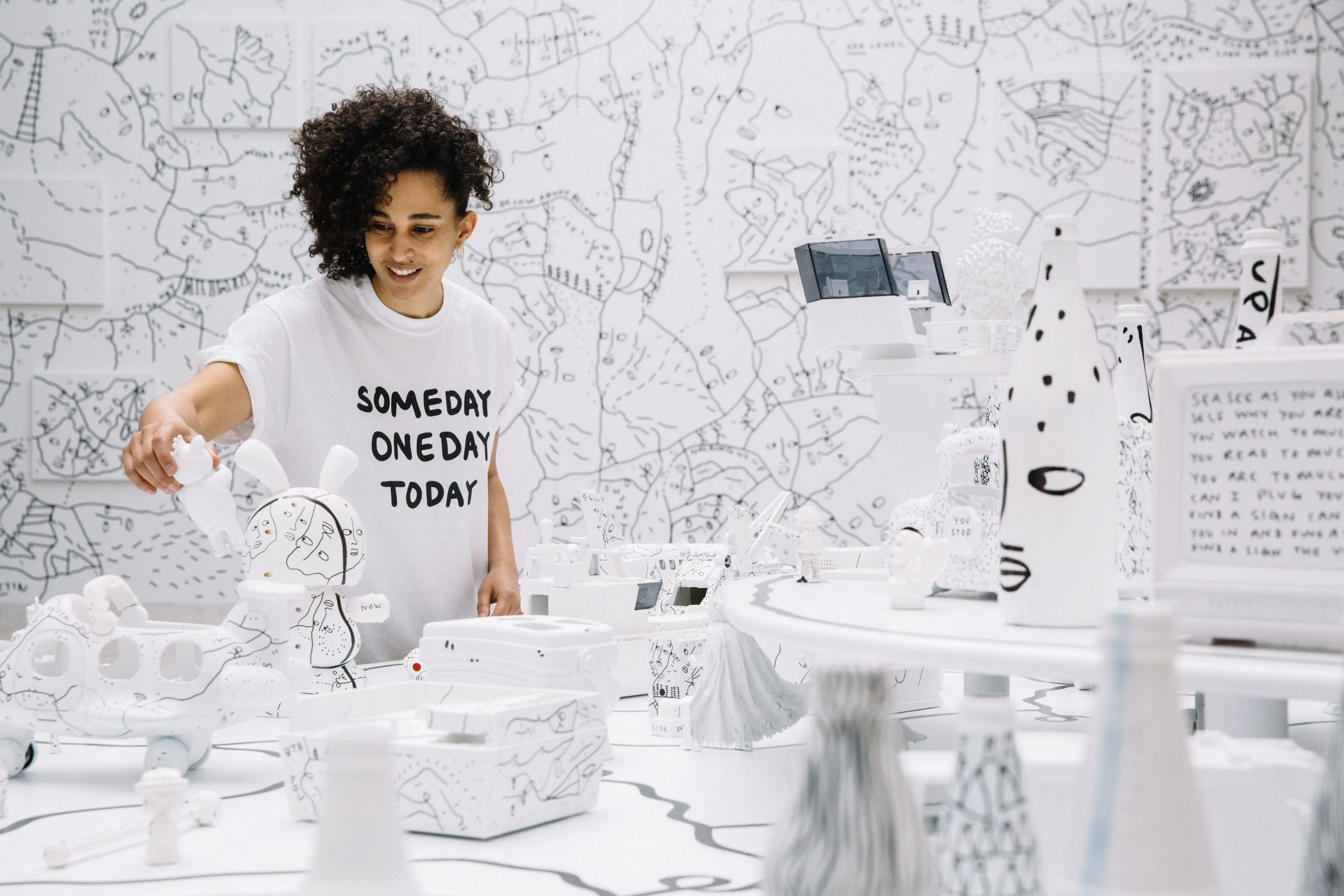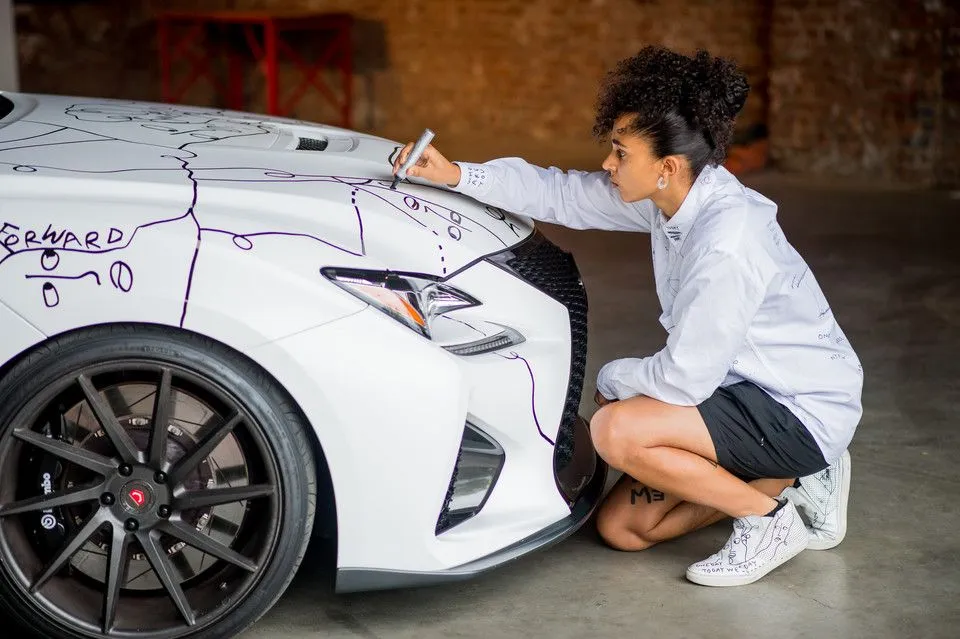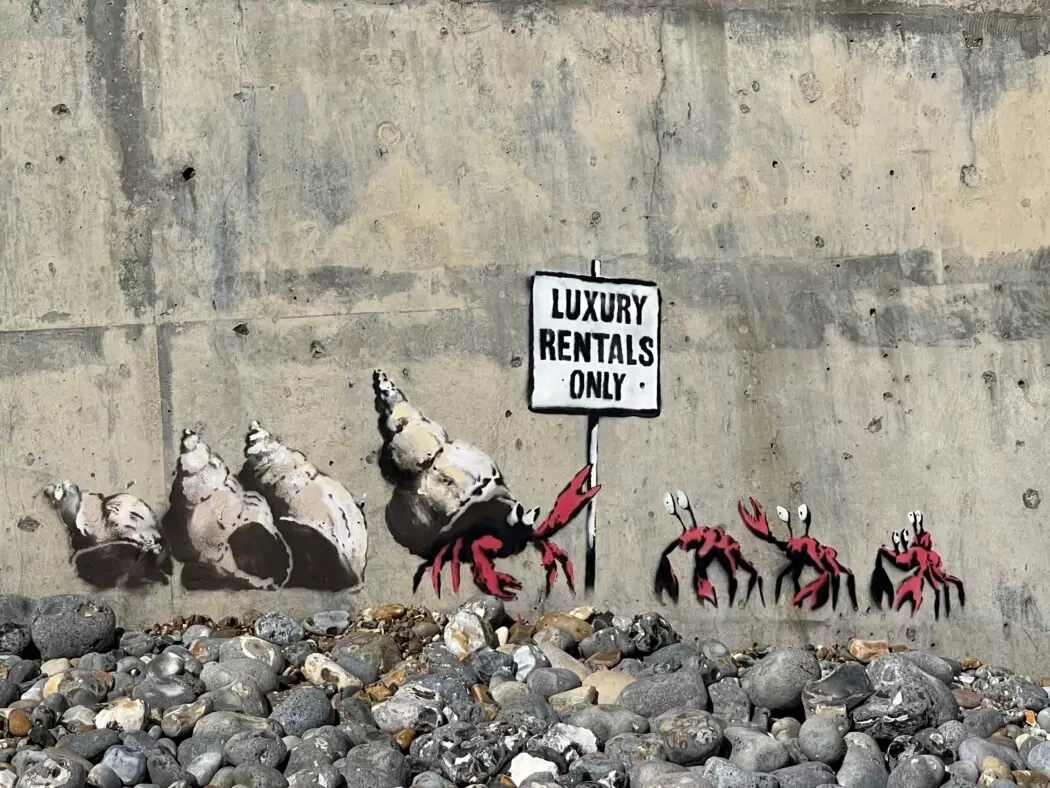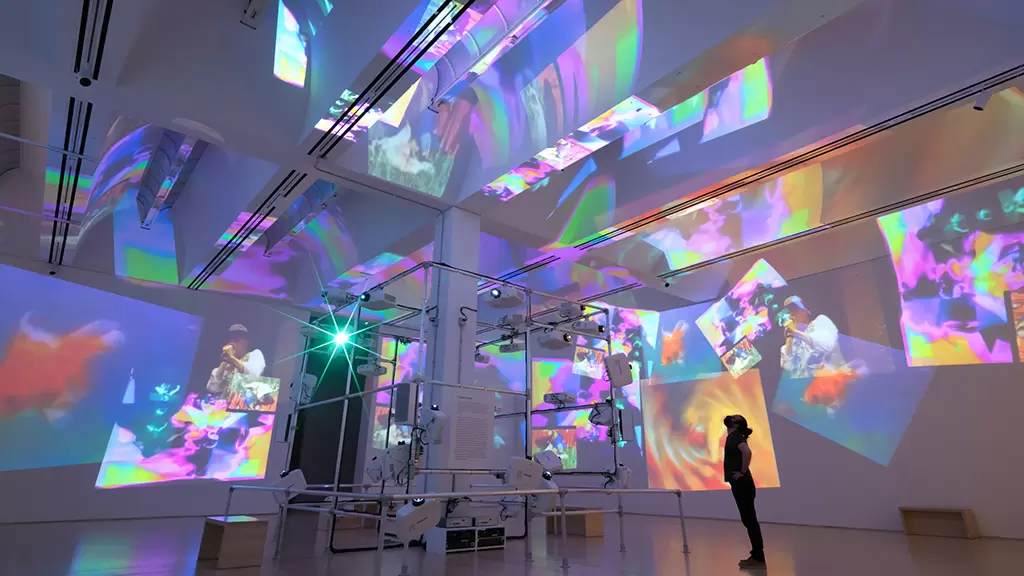Adopter stories: «I have found freedom in being myself»
The New York-based, London-born artist Shantell Martin once named by French Glamour «the coolest It girl» is a true star of the art world, whose unique style is absolutely recognisable.


She is famous for her workshops, VJ sets, live drawing performances and high-profile collaborations with top brands such as Max Mara, Tiffany&Co, Puma and Vespa, scientists from the MIT Media Lab and the performance with American rapper Kendrick Lamar at Art Basel in Miami. Her personal style has been reflected in the Vogue Magazine and the New Yorker Magazine. .ART talked with Shantell about her artistic credo, the collaboration with her grandma and the issues of race.

Tell us a little about your creative route. How did you decide to become an artist?
I don’t know if I decided to be an artist, but I can say that after having spent time in Japan where I learned the value of discipline and craftsmanship, my creativity became more of a way of living and a way of expressing myself with the same commitment that I learned from the culture there. As a child I was always drawing and I went to art school, but the shift didn’t occur until I was able to truly connect the creativity with a way of life.
You have spent 5 years in Tokyo. What were you doing there?
I was initially there to teach English but then I began doing visual jockey work there which was the starting point for being a full-time working artist. Japanese culture impacted me with regards to being disciplined and understanding that this is a lifetime that I get to continuously explore my creativity. There isn’t a rush to some sort of finish line but instead the process of creating is the work. It is the art. It also very much informed my work that time in the sense that I saw the value in drawing live and with an audience which is still a fundamental aspect to my creativity.
There isn’t a rush to some sort of finish line but instead the process of creating is the work.

Your «live drawing» performances look truly impressive. Do you just follow a stream of your consciousness or have some ready patterns in your head in advance?
I have my language of lines and symbols and I think that is there in me before I set out to work on any piece whether it’s live in front of an audience or alone in my studio but then the aspect of being completely present and being informed by my environment and my experience of the moment is what is always different and can never be planned.
You have once formulated your artistic credo as «Drawing on everything». Can you recall the most unusual things that you drew on?
I’m not sure there has been really anything that’s «unusual» but maybe what’s unusual is my ability be confident in seeing the world as a canvas. Seeing everything I have access to as a place or an object to create on or with.

Your style is black and white. Why did you choose such a minimalistic one?
It’s funny people ask me this question all the time and the truth is I do use color, maybe less so now than before but what I think I’ve done is stripped down my language, which is what I consider my art to be, and I’ve learned to explore the depth of my process and the questions I ask in it, with simplicity and I’ve found that to be very effective both for myself and my audience.
How to choose the perfect domain name for your art website Read More .ART Domain Name: Your Digital Business Card Read More How to register a business email on .ART Read More
Your style looks unique. Did you invent it?
My style is just an extension of me and my life and everything I experience in it has contributed to what it looks like. I think that what might be interpreted as unique is that I have found freedom in being myself and not conforming to anyone’s idea of who I should be or what I should be creating and that’s something that has developed over time. I hope more people, whether they’re artists or not, can also find that freedom and that confidence and that’s also a part of what my work asks of my audience. Are you being you?
I have found freedom in being myself and not conforming to anyone’s idea of who I should be or what I should be creating and that’s something that has developed over time.
One of the most important question in philosophy and psychology, in human life is a question of identity. Is that the essence of your questions «Who are you?» and «Are you?»?
The essence to me is always seeking the truth of who I am and what that is. It’s my compass which then is explored through my art/my ink/my pen.

Is your identity more about inner feelings or about representation?
It’s both as well as the aspect of our experience in our lives and how that impacts our identity.
How can one be unique in the era of globalisation? And can one?
By being aware, by being honest, by being consistently on the path of being who you truly are.
Once you let go of your own self judgement and once you let go of caring about anyone else’s judgement… you’ll see it and be it and you’ll value that uniqueness.
What is a typical workday for you? Do you have a lot of routine? Do you consider yourself as a workaholic?
Every day is different, which I love, but it is also a part of the challenge. Some days I’m in the studio, some days I’m out looking at new places where my work will live in, some days I’m meeting with collaborators… it’s always different. But I try to be consistent and yes, I’m a bit of a workaholic though I’m learning to let myself shut off and be at home or out with friends and not feel the itch to be working.
Every day is different, which I love, but it is also a part of the challenge.
What is your opinion on the Internet’s role for artists? Do you think that much of your success has come from utilising all these media platforms -Instagram, YouTube, and so on?
It’s a tool and I always try to say that with any tool your job is to learn how to use it so that it benefits you and supports your ability to work and create. Whether it’s Instagram or YouTube or whatever… if it works for you, use it. If it doesn’t don’t.
You have had different collaborations with well-known brands such as Puma, Nike, Tiffany, Google X labs. What was the most interesting thing about this experience?
All these collaborations have all been interesting in their own ways and I’m super fortunate to have been given the opportunities that I have where all the work with those brands has been based on the foundation of my work and there hasn’t been any part of my collaborative experiences where I’ve had to adjust my work to fit a brand but rather the brands that have approached me were doing so because of what my work is already.
You did a collaboration with your grandmother. It sounds very nice! Tell us a little about this project.
It’s called «Dear Grandmother». Initially I commissioned my grandmother Dot Martin to embroider «Half White» series as a reflection on racial identity and it was a way for us to kind of talk about these things which we never had talked about, while being a biracial person in a very white part of London. Then over time it grew, and we created over 70 pieces together with Dot adding her own touches of color or language along the way. The pieces were symbolically bridging gaps of distance, generation, race and culture, creating an inclusive backdrop for artistic creation.
Sadly, Dot passed away in October of 2015 at the fine age of 80-something (she didn’t tell anyone her actual age), and I felt extremely grateful that we were able to find such a fun and creative way to collaborate before her passing and eventually the work we created was exhibited in the Brooklyn Museum.

What does success look like to you? Are you successful? From the point of view of the audience? From your own point of view?
Consistency. Consistency in all areas of my life and my work and that is a challenge and a success when you can achieve it even if it’s just for brief periods of time.
What is you idea of happiness? Are you happy?
Happiness comes in many forms and I’m still learning what those forms are to me. I find happiness and I seek it daily.




